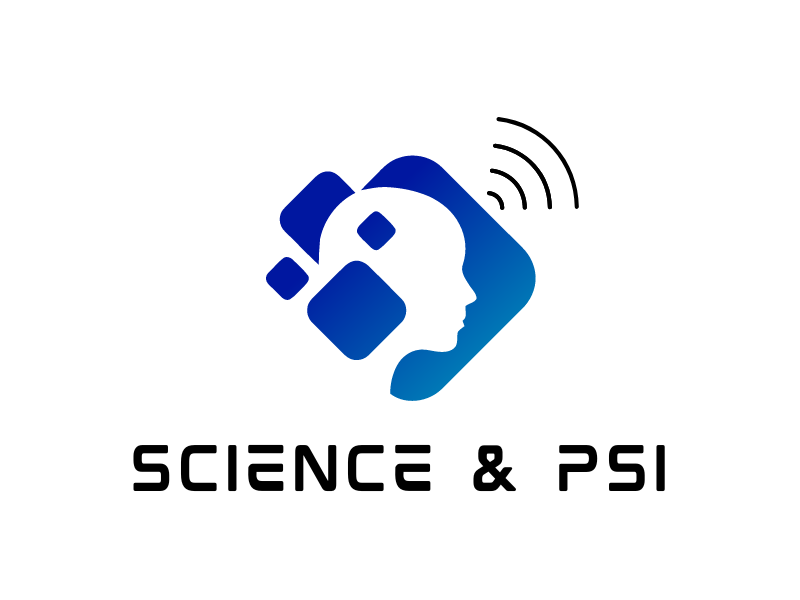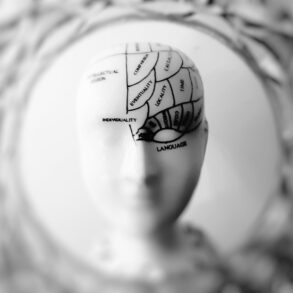The Performance of Power
In 1974, performance artist Marina Abramovic stood motionless for six hours in her piece Rhythm 0, inviting the audience to use seventy-two objects on her body. Among them were a rose, a knife, and even a loaded gun. At first, people approached her with curiosity. Soon, that curiosity turned to cruelty. The piece exposed how quickly empathy collapses when resistance is absent. Reflecting on the experience, Abramovic said:
“What I learned was that… if you leave it up to the audience, they can kill you. I felt really violated. They cut my clothes, they stuck rose thorns in my stomach, and one person held a gun to my head.”
I’ve witnessed debunkers that come from Western Skeptic Subculture function in a similar way: it grants permission for cruelty under the banner of rationality. Once people believe they are defending “science,” mockery becomes moral, and harm becomes entertainment. Like Abramović’s audience, the debunker believes their violence is justified, because the system tells them it’s allowed. No one speaks out against the system!
Science, History, and the Policing of Knowledge
To understand behavior, one must examine the systems that provide justification. While science has undeniably advanced society in countless ways, it has also contributed to profound harm, particularly through the exploitation and objectification of marginalized communities. From the eugenics movement that pathologized difference, to the medical experiments conducted on enslaved people, Indigenous populations, and impoverished groups without consent, the history of science is intertwined with systems of domination. Under the banner of “progress,” entire populations were measured, classified, and controlled, often stripped of humanity in the process to suit a Eurocentric narrative.
The same framework that produced vaccines and space travel also justified forced sterilizations, racial hierarchies, and unethical experimentation, from the Tuskegee Syphilis Study to the extraction of Henrietta Lacks’ cells without her knowledge. These moments were not aberrations but reflections of deeper epistemic assumptions: that knowledge can be pursued without relationship, that data is neutral, and that human value is conditional upon conformity to a dominant model of reason.
An article in Cultural Studies of Education suggests that understanding this dual legacy is essential, because the authority of science still carries the power to define who is credible, whose experiences count as “real,” and whose lives are expendable in the pursuit of knowledge. Science education carries colonial and neoliberal logics that normalize domination, hierarchy, and exclusion under the guise of rationality and progress.
Today, many young academics proclaim, “I’m just following the facts,” unaware of the underlying axioms and philosophical assumptions that shape science itself. Ironically, this unexamined certainty can make them the most dangerous person in the room. Because, the most dangerous person isn’t the one with a strong philosophy. It’s the one who believes they have none. When someone thinks they’re being “objective,” “neutral,” or “just knows the truth.” That’s when dogmatism hides in plain sight. They’re blind to the hidden assumptions shaping their worldview.
Philosopher of science Paul Feyerabend argued in Against Method that science isn’t as objective as it claims to be. He saw it as a cultural system, shaped by power and belief like any other. When science forgets its human side and silences other ways of knowing, it stops freeing people and starts controlling them. His idea of “epistemological anarchism” wasn’t about rejecting knowledge, but about keeping it open and free, recognizing that no single worldview should rule over all others. He called this attitude of superiority “scientific chauvinism.”
Today, Western Skeptic Culture Organizations embody scientific chauvinism. It dismisses other ways of knowing while presenting itself as rational inquiry or truth. In doing so, it quietly reinforces the authority of colonialism embedded in Western science, continuing a long legacy of control over knowledge and deciding whose perspectives are considered valid or worthy of attention. Dehumanizing those who don’t subscribe to Eurocentric norms.
Educator Ashley Thee Baroness describes the psychological dynamics of colonialism:
“Colonization wasn’t just about stealing land, it was about hijacking the mind. They didn’t just conquer people; they rewired them. That’s the real psychological warfare: convincing the oppressed that their suffering was order, that obedience was holy, and that freedom was chaos… They created the ‘civilized versus savage’ binary so deep in the global psyche that even after independence, people still chased Western approval. That’s the genius of colonial psychology, it doesn’t end when the flag comes down; it ends when the mirror changes.”
Debunking Culture Today
Western Skeptic Organizations often claim to serve the public by preventing harmful misinformation and directing people toward science. Yet evidence suggests it frequently does the opposite. A study in Social Media + Society (Chen, Jin, Shao, 2022) shows that debates around science and misinformation adopt group identity language that frames discourse as “us versus them” (science vs non-science), amplifying negative engagement rather than fostering inclusive dialogue. Anecdotally, I’ve observed mocking and online bullying tactics used to dehumanize and promote the rhetoric of philosophical materialism, rather than to engage sincerely with the science itself.
Debunkers often act as gatekeepers, deciding who may speak and what qualifies as “real” knowledge. According to the National Academies of Sciences, Engineering, and Medicine (2023). Gatekeeper’s motives are driven more by ego than by truth. Seeking career advancement, social media influence, or acceptance within a professional community. Science gatekeepers may claim they are defending objective knowledge, but in reality, their actions frequently serve to protect the existing paradigm and their own position within it.
A recent example of this appeared on social media when a science communicator declared, quote “Alternative and Eastern medicine is largely bullshit.” She went on to argue that medical knowledge from these traditions, extracted through patent colonial practices, was only “improved” by Western pharmaceuticals, ultimately dismissing entire epistemological systems as pseudoscience.
Rather than acknowledging Tu Youyou’s 2015 Nobel Prize for discovering artemisinin. A lifesaving malaria treatment derived directly from Traditional Chinese Medicine. She chose to belittle the historical and foundational contributions of Eastern and Indigenous healing traditions to modern medicine. Her message dismissed and demeaned the very communities whose knowledge helped shape the field, instead of educating or empowering.
This attitude disrespects cultural heritage and perpetuates colonial dynamics, reinforcing the divide between science and the communities it claims to serve. The consequences are real: medical disparities persist and misinformation thrives.
I recognize that not everyone with a degree is a science communicator, even if an open mic or social media platform allows them to claim that title. Yet I’ve had the privilege of witnessing excellent science communication, both in person and across social media platforms addressing misinformation ethically. I appreciate their openness in acknowledging areas of unsettled science. Many have even recommended books whose research aligns more closely with my perspective, demonstrating a genuine commitment to dialogue and intellectual curiosity. I’ve witnessed firsthand the commitment and integrity of scientists who advocate for acknowledging the vital role of philosophy in science, from addressing issues of ethics, bias, methods, and assumptions. I saw scientists attending rallies to defend knowledge production when policies threatened research funding and diversity in science. They understood that without adequate funding and diverse perspectives, society as a whole suffers.
A study in the Science Communication Journal reinforces this: simply correcting misinformation is not enough. Effective science communication requires understanding social, cultural, and structural contexts, particularly for marginalized communities. Skilled communicators respect culturally rooted ways of knowing and work actively to avoid repeating patterns of exclusion or exploitation, recognizing science’s colonial legacy, biopiracy, and epistemic injustice.
The Wellness Paradox
Some may claim that I am defending the wellness industry as a counter to criticizing Western pharmaceuticals, that is not the case. Both Western medicine and the wellness industry have relied on colonial practices. The wellness industry often markets untested or minimally studied treatments to communities historically underserved or excluded by Western healthcare, frequently at high cost. It also engages in cultural appropriation, stripping traditional healing systems of context and meaning and reducing them to commodified products like pills and powders.
This commodification can undermine effectiveness: companies may use the wrong plant parts, substitute cheaper fillers, or avoid roots and barks where active compounds are concentrated. Some products are labeled as “traditional medicine” despite having no authentic historical basis, using cultural references purely as branding. High-priced wellness resorts offer treatments derived from sacred medicines of other cultures, often without meaningful involvement, consent, or benefit-sharing with the originating communities.
Decolonizing Science
Decolonizing science means creating education, medical, and research systems that serve everyone, not just a select few. Movements in ethnopharmacology, patent law, and decolonial science are pushing for credit-sharing and returning control to communities whose knowledge has shaped modern medicine.
Indigenous cosmologies and oral traditions were historically reframed as “myths” under colonial rule, but they functioned as ecological sciences, psychological maps, and ethical frameworks grounded in relational understanding. Recognizing these histories enriches science. These systems aren’t alternative, they are equal to western science’s methodology. It’s about recognition, collaboration, and inclusion.
Western medicine emphasizes pharmaceuticals and surgery; Indigenous systems emphasize holistic approaches and ecological context. Ethical collaboration between these systems, such as integrating Traditional Ecological Knowledge into conservation or health research, produces more accurate and equitable results.
A study conducted in the Bolivian rainforest provides quantitative evidence that Indigenous ecological knowledge directly contributes to measurable environmental protection. Its findings challenge the notion that Western scientific management alone can ensure conservation success, instead highlighting the value of a collaborative, decolonial approach that weaves Indigenous perspectives into the fabric of environmental policy.
A study by Trnka, Krtek, and Lorencova (2024) explored how Western clients engage with psychotherapies rooted in Indigenous healing. Participants described profound gains in well‑being, emotion regulation, stress management, and life satisfaction, alongside a deeper, more expansive experience of reality. Yet the study also reveals a key tension: these benefits are harder to realize when Indigenous practices are uprooted from their cultural origins and transplanted into Western settings. This research underscores the transformative potential of plural healing systems and serves as a reminder that meaningful integration of Indigenous knowledge requires respect for culture, power, and context challenging the assumption that Western models of therapy hold universal authority.
Challenging the dominance of Western science often earns critics the label of heretic or “anti-science.” This backlash comes from a fear of losing control over who decides what counts as truth. Yet, the idea of pluralism in science, as Feyerabend and others have argued, has already proven its value.
Two Eyed Seeing
Elder Albert Marshall from the Mi’kmaw introduced the concept of Two-Eyed Seeing (Etuaptmumk). It encourages us to see with one eye the strengths of Indigenous knowledge, and with the other the strengths of Western science. It became a major philosophical and methodological framework for bridging Indigenous and Western knowledge systems. Two-Eyed Seeing is especially influential in environmental science, healthcare, and education, where it encourages collaboration, respect, and co-learning between cultures. It’s not about assimilation or compromise, but about epistemic humility, acknowledging that no single worldview holds all the answers. They are equals.
Real Life Example
In 1993, a mysterious and deadly illness struck the Four Corners region, where New Mexico, Arizona, Utah, and Colorado meet. Healthy young adults, many of them Navajo, were dying within days from a fast-moving respiratory disease.
When federal scientists arrived to investigate, they worked with local physicians, the Indian Health Service, and Navajo health officials. Elders helped guide the researchers through their land and shared traditional knowledge that after heavy rains, vegetation and seeds increase, leading to a surge in mice. This insight helped direct scientists toward an ecological explanation. Researchers later confirmed that heavy rains linked to El Niño had caused a deer mouse population boom; the mice carried a previously unknown hantavirus, later named Sin Nombre virus. In Diné oral tradition, such events were understood as signs of imbalance in the natural world.
Traditional Navajo practices, such as burning the belongings of those who had died, cleansing homes, and performing ceremonies to restore harmony. Reflected deep ecological and spiritual understanding. These customs also paralleled modern infection-control principles and helped reduce further transmission. The collaboration between Navajo knowledge keepers and federal scientists proved crucial in identifying the source of the outbreak and bringing it under control.
Inspiration
I’ve received messages asking why a mystic like me doesn’t offer personal readings, teach courses, or speak of religion. Why I choose to advocate for science, mental health, and justice. The answer is simple: mystics don’t bow to religion, we redefine it. I’ve never met a real mystic that doesn’t fight for justice in some way. What a person chooses to do with their abilities is deeply personal, and I honor every path. I’ve seen brilliant teachers, but it is not my path to walk. I believe these gifts exist within everyone. Some more strongly than others, and I have chosen to walk alongside scientists to help advance them.
My inspiration comes from mystic warriors who used their gifts for courage and liberation, figures like Lozen Apache Warrior and Harriet Tubman. It’s not the gifts that make you special, but it is what you do with your gifts that reveals who you truly are.
Marina Abramović’s experiment reminds us that unchecked authority, no matter how justified it seems, can cause harm. Science has immense power to advance society, but that power must be wielded thoughtfully, acknowledging historical injustices and including diverse epistemologies.
A truly liberated science embraces plurality, collaboration, and decolonization, giving voice to perspectives long dismissed or erased. Only then can science serve all communities, rather than reinforce hierarchies inherited from colonial and gatekeeping legacies.
If reason becomes the new dogma, who will dare to be irrational? And if curiosity itself becomes a crime, what kind of civilization will we have saved?
References
Amazeen, M. A., Vasquez, R. A., Krishna, A., Ji, Y. G., Su, C. C., & Cummings, J. J. (2024). Missing voices: Examining how misinformation-susceptible individuals from underrepresented communities engage, perceive, and combat science misinformation. Science Communication, 46(1), 3–35. https://doi.org/10.1177/10755470231217536
Chen, K., Jin, Y., & Shao, A. (2022). Science factionalism: How group identity language affects public engagement with misinformation and debunking narratives on a popular Q&A platform in China. Social Media + Society, 8(1). https://doi.org/10.1177/20563051221077019
Kato, D. S., Galamba, A., & Monteiro, B. A. P. (2023). Decolonial scientific education to combat ‘science for domination’. Cultural Studies of Science Education, 18, 217–235. https://doi.org/10.1007/s11422-023-10165-4
National Academies of Sciences, Engineering, and Medicine. (2023). Advancing antiracism, diversity, equity, and inclusion in STEMM organizations: Beyond broadening participation. The National Academies Press. https://doi.org/10.17226/26803
Paneque-Gálvez, J., Pérez-Llorente, I., Luz, A. C., Guèze, M., Mas, J.-F., Macía, M. J., Orta-Martínez, M., & Reyes-García, V. (2018). High overlap between traditional ecological knowledge and forest conservation found in the Bolivian Amazon. Environmental Research Letters, 13(12), 124035. https://doi.org/10.1088/1748-9326/aaf0e3
Trnka, R., Krtek, A., & Lorencova, R. (2024). Bridging realms: Western client perspectives on psychotherapy inspired by Indigenous healing. Explore, 20(6), 701–709. https://doi.org/10.1016/j.explore.2024.103059
Marina Abramović, Rhythm 0 (1974). Performance at Studio Morra, Naples, Italy. Image © Marina Abramović / Artists Rights Society (ARS), New York / VG Bild-Kunst, Bonn. Used under fair use for educational and critical commentary.









